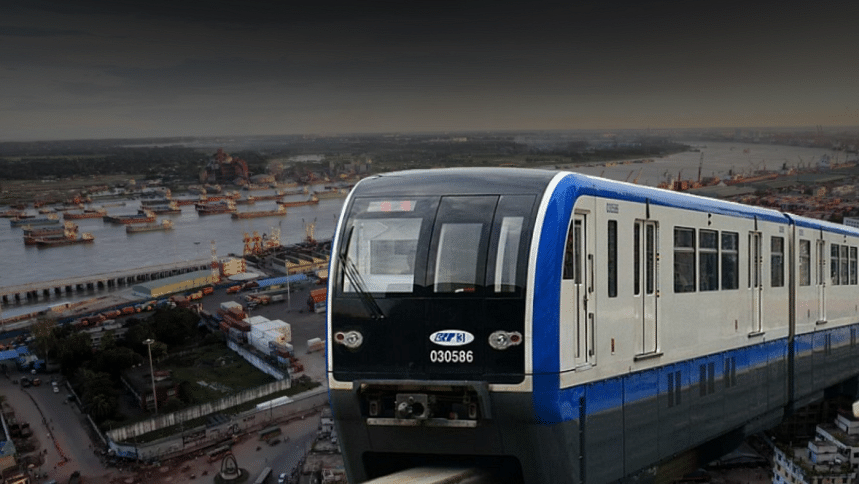Monorail in Chattogram: Will it ease traffic or add to the chaos?

The country's first monorail is set to take shape in Chattogram. In a city where the hills meet the sea and the traffic meets your patience, the news has landed with a mix of cautious optimism and classic scepticism. Whether it's a leap into the future or another lofty promise built on stilts, the announcement has stirred up just the kind of reaction that big infrastructure dreams usually do: half hope, half hesitation.
With a goal to combat the city's growing traffic congestion, at the World Trade Center, Chattogram City Corporation signed an MoU with Orascom Group and Arab Contractors Group to conduct a feasibility study. If all goes well, the monorail could be up and running in two to two-and-a-half years.
On paper, the concept is solid: less land required, quicker to construct than metro rail, and about 40 per cent cheaper. The monorail, sleek, single-railed, and elevated, promises to offer a cleaner, faster mode of urban transport. However, promises have weight in this country. And just like Dhaka, Chittagong is used to a long queue of flashy announcements followed by years of half-dug roads, known better than to cheer too early.
"Monorail doesn't just mean a new vehicle," said Intisar, a university student and daily commuter. "It's a kind of urban culture. If implemented properly, it could influence everything starting from business and tourism, to the pace of life." She added, "Think about it, if projects like the Mirsarai Economic Zone or the Karnaphuli Tunnel don't have strong transport links, the whole benefit is lost. Monorail can be that link."
Still, not everyone is convinced the city needs it, at least not right now.
"In Chittagong, we don't face traffic jams everywhere like Dhaka," said Mohammad Yasin, a teacher and regular commuter. "It can help in the areas where congestion is a real problem, sure. But it's not a must-have. If the construction cost outweighs the actual benefit, I don't think it'll be helpful. Look at the elevated expressway connecting the airport to Lalkhan Bazar, it's not used much, unlike the one in Dhaka."
And then there's the issue of priorities. "There are still so many canals and drains left unrepaired in Chattogram," said Sabira, another daily commuter. "It rains a little and the streets flood. If you throw money into big projects like monorail without fixing these, the real problems remain." She didn't hold back on pointing out, "Dhaka's metro rail isn't finished yet. Starting something new before ending what's already underway just feels like wasting public resources."
And yet, maybe we're allowed a little hope. "Traffic congestion wastes so much of our time. The roads are full of unstructured and polluting vehicles" said Nuha Muhtashima, a student who balances studies and work across the city. "A clean, fast, and efficient system like the monorail could really help reduce these problems. So overall, I think it's a smart move."
This scepticism is not cynicism, it's like muscle memory because, in our context, big projects often arrive with bigger detours. Some of us fear the lag, the kind that leaves roads torn up for years and traffic snarled in protest. The lag causes traffic congestion, which in turn irritates and we are not exactly known for being patient about change. Add the usual question, how much is this going to cost us? and you've got your typical Chattogram cocktail of excitement and concern. But then again, maybe this time, things could be different. Maybe we can try to be optimistic, cautiously.

 For all latest news, follow The Daily Star's Google News channel.
For all latest news, follow The Daily Star's Google News channel. 








Comments